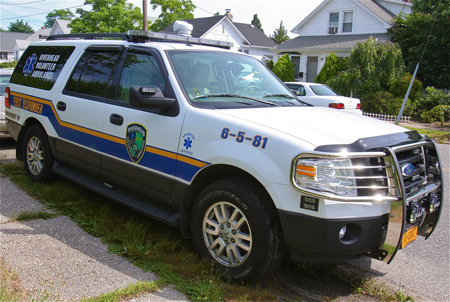Editorial: Ambulance billing may come at high cost to some
The idea is that because Medicare is willing to reimburse the cost of ambulance calls, town officials say, and because the Riverhead Volunteer Ambulance Corps doesn’t bill for pricey ambulance service, a lot of money is being left on the table.
But there has to be a better way of obtaining non-tax funding than what this Riverhead Town Board is currently considering.
Under the board’s proposal, the health insurance provider of any person who uses the service of the ambulance corps — regardless of whether they pay taxes to Riverhead’s ambulance district or not — would be billed for an ambulance ride. That bill would likely be higher for advanced life support services.
If you don’t have health insurance, the bill — Port Jefferson charges $1,200 for advanced life support calls — would go directly to your house.
And you thought your month couldn’t get any worse.
The idea is that ambulance district taxes would, in a few years, be lowered across the board because of the added revenue from the billing. Excuse the cynicism, but that’s hard to believe. And even if this were true, is it really worth it?
In terms of property taxes, the ambulance district’s current rate equates to about $95 per year for someone with the so-called average assessment of $50,000. That’s not peanuts, but it’s still lower than the tax rate for the library and much lower than fire districts’ rates. And that figure pales in comparison with the thousands residents pay annually in school taxes.
The ambulance district is not the area of government where we should be worrying about taxes.
And think of the potential negative impacts.
Say you’re a taxpaying resident without Medicare, Medicaid or private health insurance and you feel a tingling sensation in your neck and arm, or some sort of crippling headache. Could be heart attack or a stroke. And a good time to call an ambulance.
But what about that bill? This could end up being a costly false alarm, you think, because you’ve heard of others in town getting big bills after ambulance trips. Then, perhaps, you decide against making what could be a life-saving call.
That’s no way to think.
We’re trained from a young age that in the event of any type of police, fire or medical emergency, we should call 911 without delay, because every second is precious. The town’s plan flies in the face of that and, as proposed, is seriously flawed. Life-and-death kind of flawed. The board’s plan to not enforce the billing — but send three nasty letters — doesn’t change the fact that some people will pay or will believe that if they do call an ambulance, they will be forced to pay.
The ambulance corps didn’t come to the Town Board with this request. In fact, ambulance officials resisted the proposal when it was first floated a few weeks back, pointing to potential administrative challenges and privacy issues, among other things.
Considering the push-back and the fact that all new revenues must remain within the ambulance district — and not be used in the town’s general fund — why is the Town Board still pursuing this? Lowering a tax bill that already only amounts to a few bucks a month hardly seems worth the headache, especially for those of us who do wind up paying that $700 to $1,200 bill from the town.
(On top of the ambulance taxes.)
If it turns out the ambulance corps truly needs more money to keep providing top emergency care to Riverhead residents, here’s a better idea: raise property taxes. A supermajority of the Town Board would be all it takes to pierce the state’s 2 percent tax cap.









